Publications
Articles, publications, books, tools and multimedia features from the U.S. Institute of Peace provide the latest news, analysis, research findings, practitioner guides and reports, all related to the conflict zones and issues that are at the center of the Institute’s work to prevent and reduce violent conflict.
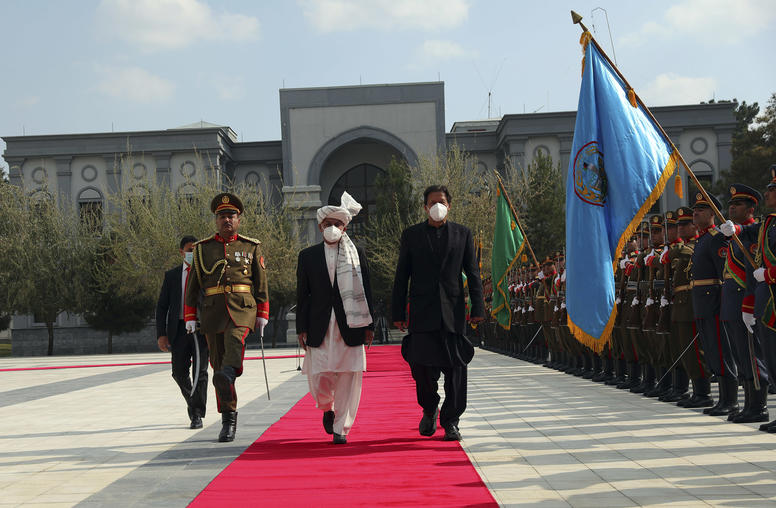
Afghanistan-Pakistan Ties and Future Stability in Afghanistan
The situation in Afghanistan—and with it the Afghanistan-Pakistan relationship—is likely to worsen in the short term. The prospect of a prolonged civil war or full Taliban takeover now looms large as hopes of a negotiated settlement recede. Whatever the outcome, the countries’ bilateral relationship will continue to be shaped by tensions that have characterized it for more than a century. This report examines these sources of tension and identifies potential openings for engagement that could, over time, become sources of stability and growth.
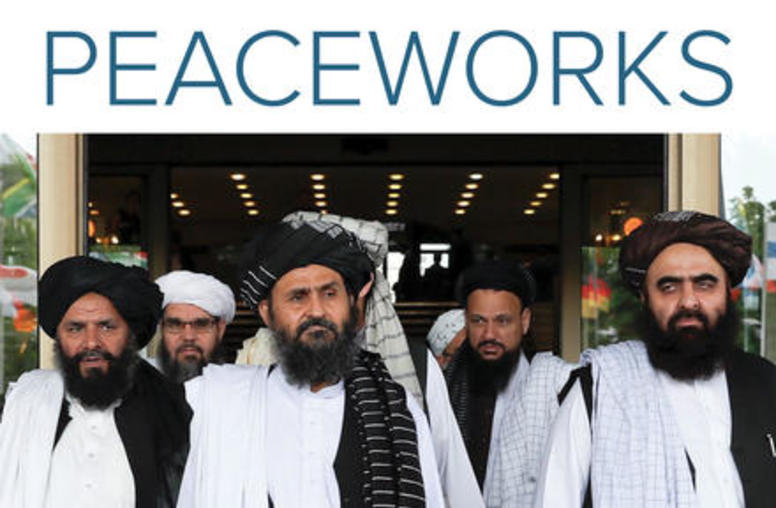
Insurgent Bureaucracy: How the Taliban Makes Policy
The system of shadow Taliban governance and the experiences of civilians subject to it are well documented. The policies that guide this governance and the factors that contribute to them, however, are not. This report examines how the Taliban make and implement policy. Based on more than a hundred interviews and previously unreleased Taliban documents, this report offers rare insight into Taliban decision-making processes and the factors that influence them.
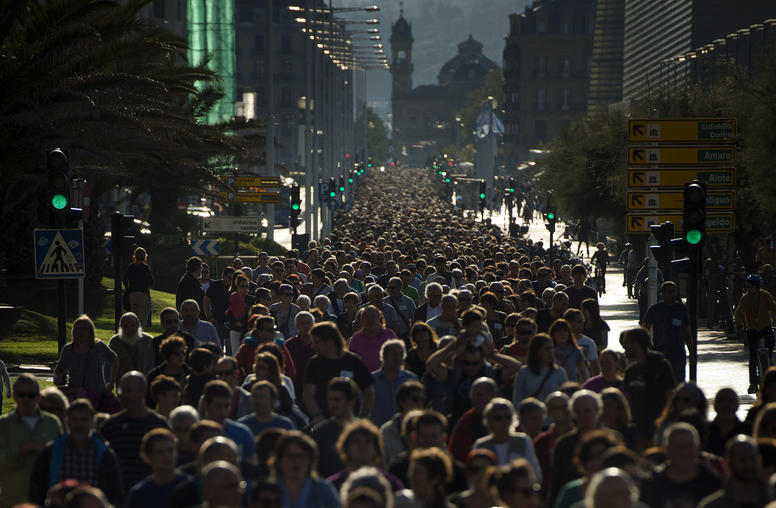
From the Street to the Peace Table: Nonviolent Mobilization during Intrastate Peace Processes
Though nonviolent grassroots movements often help spur transitions to peace and democracy, they are rarely invited to play a role in formal peace processes. Yet these movements can and do influence the course and content of peace negotiations and contribute to the quality and durability of the resulting peace. This report examines the strategies they employ and provides insights for grassroots movements currently mobilizing for peace or change in Myanmar, South Sudan, Syria, Yemen, and elsewhere.
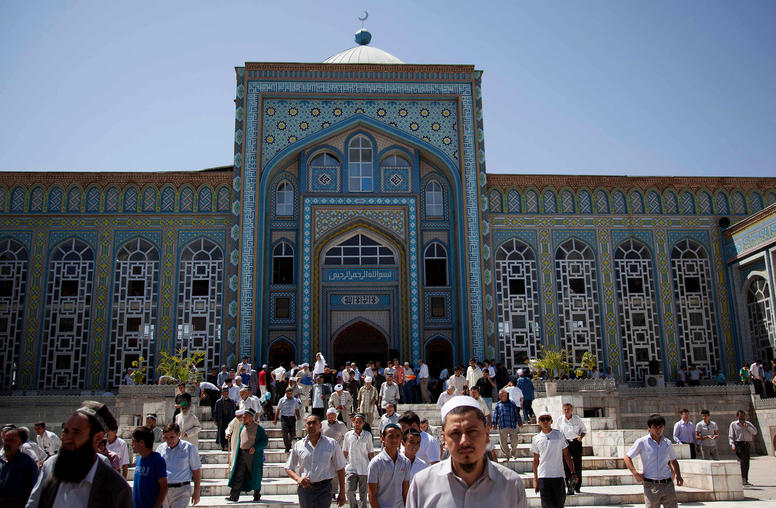
Engaging with Muslim Civil Society in Central Asia: Components, Approaches, and Opportunities
When Western policymakers and development practitioners turn their attention to Central Asia, they too often overlook Muslim civil society as a potential partner for addressing the region’s economic and social problems. This report, which is based on dozens of interviews with representatives of Muslim civil society organizations in Kazakhstan, Kyrgyzstan, Tajikistan, and Uzbekistan, is intended to help generate a much-needed conversation about Muslim civil society in Central Asia and how Western donors and practitioners can begin tapping their potential.
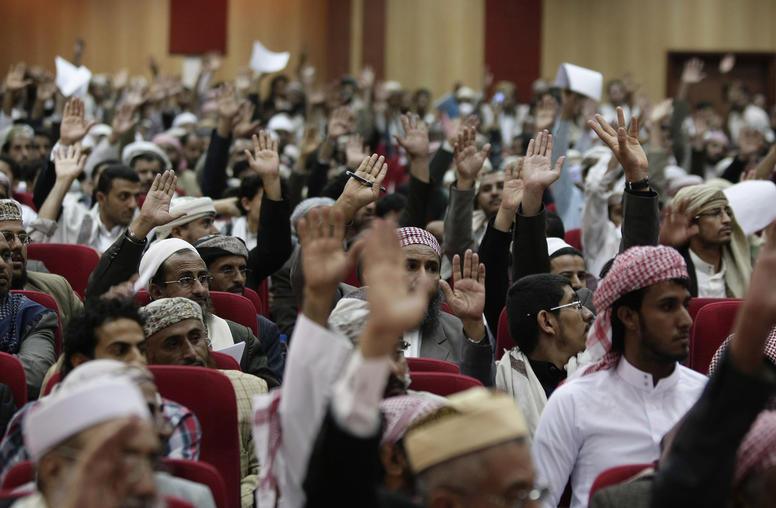
Dialogues nationaux sur la consolidation de la paix et les transitions créativité et pensée adaptative
Dans le meilleur des cas, les processus de dialogue national promettent d’apporter un élan décisif à la transformation inclusive du conflit. Ce rapport examine les dialogues dans six pays: la République Centrafricaine, le Kenya, le Liban, le Sénégal, la Tunisie et le Yémen. Ces divers processus montrent les possibilités de favoriser le dialogue, de forger des accords et de progresser vers la paix; et le rapport offre des conseils détaillés sur les possibilités et les aspects pratiques pour ceux qui envisagent d'organiser un dialogue national.
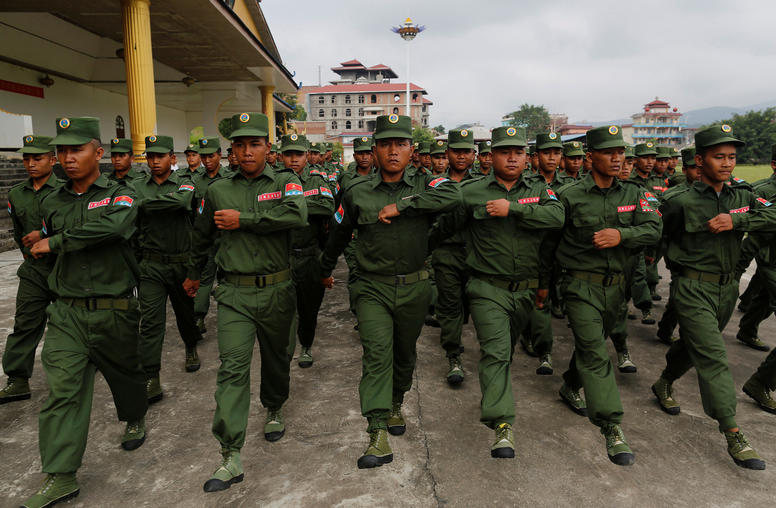
The United Wa State Army and Burma’s Peace Process
The United Wa State Army, a force of some twenty-thousand fighters, is the largest of Burma’s ethnic armed organizations. It is also the best equipped, boasting modern and sophisticated Chinese weaponry, and operates a formidable drug empire in the Golden Triangle region. This report examines the history of the Wa people, the United Wa State Army’s long-standing political and military ties to China, and the Wa’s role in Burma’s fragile peace process.
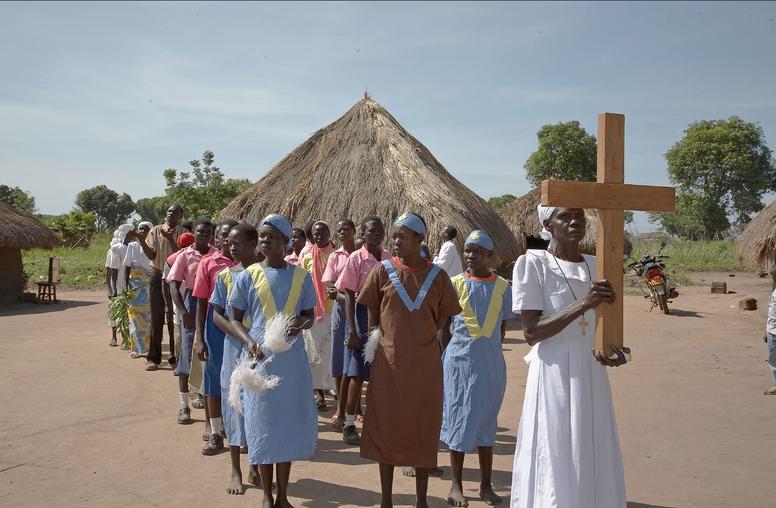
The Religious Landscape in South Sudan: Challenges and Opportunities for Engagement
Since the beginning of South Sudan's civil war in 2013, the country's religious actors have sought to play an active role in turning the tide from war and violence to peace and reconciliation. Drawing on interviews, focus groups, and consultations, this report maps the religious landscape of South Sudan and showcases the legitimate and influential religious actors and institutions, highlights challenges impeding their peace work, and provides recommendations for policymakers and practitioners to better engage with religious actors for peace.
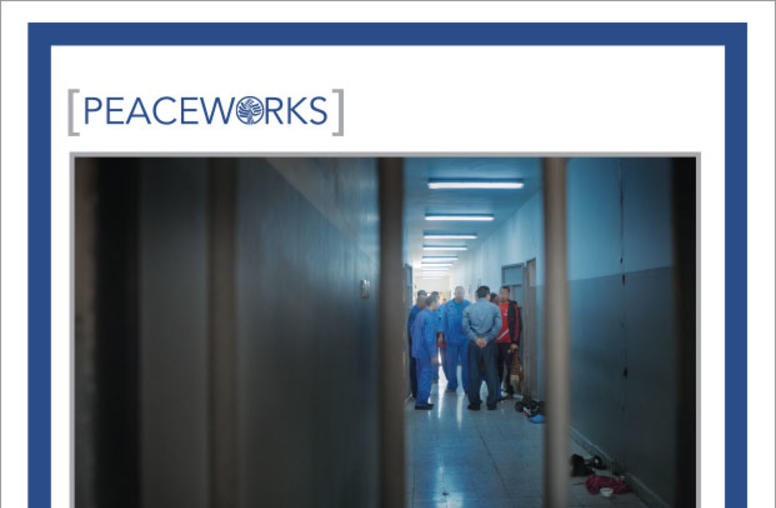
Prisons and Detention in Libya (Arabic)
التقرير الماثل هو عصارة استبيانين أُجْرِيا في ليبيا خلال عامي 2014 و2016. والغاية منه سَبْرُ أغوار القطاع الديني في ليبيا ورصد تأثيره في الحكم والمجتمع. وقد استندت عملية استخلاص نتائج هذا التقرير إلى

Systems Thinking for Peacebuilding and Rule of Law (Arabic)
إن نهجنا التقليدي المتبع في بناء السلام وعملية إصلاح سيادة القانون يبدو جيدًا؛ حيث الأهداف الطموحة، وضخ الموارد، وفرق الخبراء الذين يعملون بشكل مكثف. ومع ذلك، يبدو أننا نادرًا ما ننجح في خلق إصلاحات ناجحة ومستدامة حقًّا. لماذا نتعثر؟ تكمن إحدى الإجابات المحتملة في كيفية النظر إلى الأنظمة التي نعمل بها؛ لأننا نميل إلى معالجة العديد من نظم بناء السلام وسيادة القانون كما لو كانت أنظمة الساعة، وهي أنظمة منتظمة ويمكن التنبؤ بها بشكل كبير. وفي الواقع، فإن البيئات التي نعمل بها أشبه بأنظمة السحب من حيث إنها غير منتظمة، وغير منظمة، وغير متوقعة. واستنادًا إلى مجال التفكير المنظومي، يدعو هذا التقرير ممارسي بناء السلام إلى استخدام أكثر من منظور عند دراسة الأنظمة والمشاكل التي يواجهونها. وفي بعض الأحيان، سنضطر إلى التعامل مع المشاكل من منظور تقني زمني. وفي أحيان أخرى، سنضطر إلى استخدام منظور أوسع يركز على تعقيد النظام الأكبر. وكثيرًا ما سنحتاج إلى استخدام كلا المنظورين في التعامل مع المكونات المختلفة لجهود الإصلاح في الوقت نفسه.

Systems Thinking for Peacebuilding and Rule of Law (French)
Notre approche traditionnelle de la consolidation de la paix et de l’État de droit semble solide : des objectifs ambitieux, une injection de ressources, des équipes d’experts travaillant intensément. Pourtant nous semblons rarement aboutir à des réformes véritablement fructueuses et durables. Pourquoi nous enlisons-nous ? Une des réponses possibles réside dans notre façon de percevoir les systèmes avec lesquels nous travaillons. Nous avons tendance à traiter de nombreux systèmes de consolidation de la paix et de l’État de droit comme s’ils étaient des systèmes d’horloge, c’est-à-dire ordonnés, réguliers et prévisibles. En réalité, les environnements dans lesquels nous travaillons sont plutôt des systèmes de type nuage,en cela qu’ils sont désordonnés, irréguliers et imprévisibles.